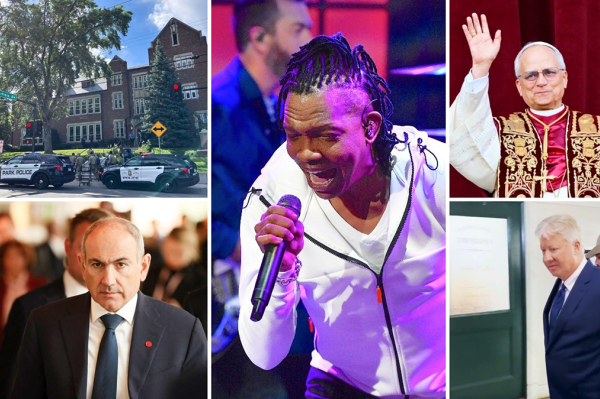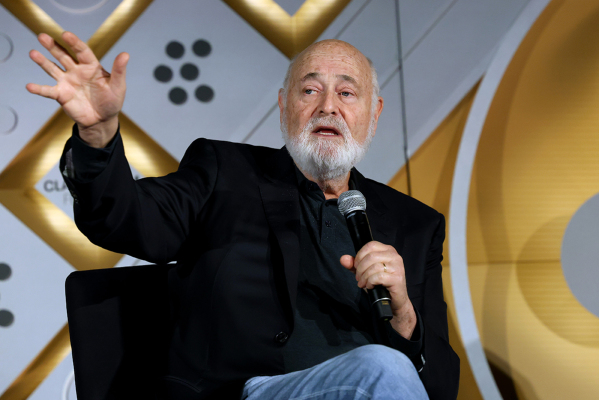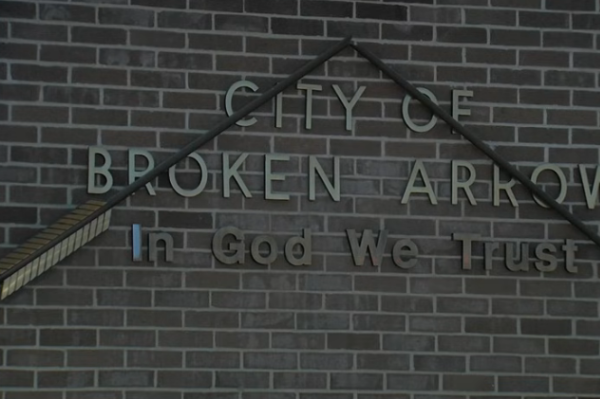CP Analysis: Where Do the GOP Candidates Stand in Iowa
If history is any indication, the Iowa caucuses may not determine the GOP nominee for president, but it will play a vital role in which of the seven major candidates will watch the next few debates from the comfort of their living rooms or remain under the hot spotlights of the stage.
In 2008, former Arkansas Gov. and now Fox News Host Mike Huckabee won the Iowa caucuses with a commanding 34 percent of the vote, followed by Mitt Romney at 25 percent. The eventual nominee, Sen. John McCain (Ariz.) finished fourth behind former Tennessee Sen. and movie star Fred Thompson whose lackluster campaign ended before he could take advantage of the southern vote in Super Tuesday.
Interestingly, Ron Paul finished in fifth place with 10 percent. Chances are almost certain he’ll do much better in 2012.
Of the two Republican candidates who have left the stage so far, Minnesota Gov. Tim Pawlenty was the first casualty and Iowa turned out to be the straw that broke his back.
After investing nearly all of his resources in hopes of winning the Iowa straw poll, Pawlenty finished a distant third behind fellow Minnesotan Michele Bachmann who finished first and Texas Congressman Ron Paul was came in second.
Unlike caucuses and elections, straw poll strategies are more akin to voting for the “most likely to succeed” candidate in high school.
Getting your “friends” to stuff the ballot box is a major part of a winning strategy and Pawlenty’s disappointing finish, plus the fact that Rick Perry entered the race on the same day, left him unable to keep the his financial contributors and supporters engaged. Soon after announcing his withdrawal, he went on to endorse his fellow gubernatorial colleague, Romney.
Herman Cain, who one year ago had virtually zero name recognition, left the race in November after numerous allegations of sexual misconduct proved too insurmountable to overcome.
Of the seven Republican candidates who most analysts would agree have some sibilance of a chance to win the nomination. Here is a run-down of their campaigns.
Mitt Romney
The former Massachusetts governor has been running for president since at least 2005. After coming up short in delegate votes to Sen. Jon McCain (Ariz.) in 2008, Romney never lost sight of his presidential aspirations and was geared up and ready to go when President Obama’s popularity and economic failures left him vulnerable to a well-funded Republican challenger who can attract Independents. Romney’s campaign is saying he fits that bill to a tee.
However, Romney’s inability to pull away from the pack and capitalize on the missteps of some of his colleagues have left some analyst wondering if he has he political ability to defeat Obama in a one-on-one matchup in November.
“Romney may be the darling of the country-club Republicans, but the grassroots guy and girl haven’t been sold on Romney,” said GOP analyst Mike Bayham. “He’s still got a lot of work to do at the coffee shop.”
Nevertheless, Romney has consistently stayed atop of most polls and is attracting many of the mainstream media and former Bush allies. Romney’s Mormon religion was brought to the forefront after Dallas pastor Robert Jeffress called Mormonism a “cult,” sparking an outcry from the media. The “religion” issue will likely remain an issue, but how much of one is yet to be seen.
Newt Gingrich
The former Speaker of the House whose 1994 Contract With America led to a Republican takeover of Congress during former President Bill Clinton’s first mid-term election has been given new life after being written off as a major contender just six months ago.
Gingrich’s “big idea” approaches combined with his unorthodox campaign style leaves some wondering if he can muster the necessary support and resources to compete all the way to next summer’s GOP convention in Tampa, Fla.
While Gingrich is attempting to attract a good portion of the “values” vote, his past martial indiscretions still haunt his campaign. Dr. Richard Land of the Southern Baptist Convention’s Ethics and Religious Liberty Commission suggested in an open letter to Gingrich that he apologize to evangelical women and then move past the issue. Nonetheless, the issue will likely remain a factor as long as his candidacy remains viable.
Ron Paul
Few candidates who have even competed at the national level have been able to attract the grassroots support that Paul has. His supporters not only believe in his positions, but also are willing to travel hundreds of miles to support him in straw polls and major events. This is one reason Paul will finish strong in Iowa.
Paul’s strength lies in his knowledge of the nation’s economic infrastructure, and although as a physician he has delivered thousands of babies, he is not viewed as a strong pro-life advocate. More importantly, his isolationist views on foreign policy are unsettling to many Republicans who believe a strong military is key to the nations well-being. Nevertheless, Paul is polling neck-in-neck with Romney in the latest Iowa polls so look for him to finish strong even though he will not be in Iowa before Tuesday’s caucuses.
Rick Santorum
The former Pennsylvania senator usually occupies one of the positions on the far end of the stage during debates, but in recent weeks and due in part to some key evangelical endorsements in Iowa, Santorum has worked his way to the top of the pack.
Santorum is the first candidate to visit all 99 counties in Iowa and his strong retail campaign skills and likability will prove beneficial in attracting Iowans. With all his strengths, his campaign has struggled in raising the large amounts needed to take on a candidate of Romney’s financial stature. A strong finish in the Iowa caucuses could give him momentum to go into the south with a fighting chance. New Hampshire will likely not be good to him.
Michele Bachmann
The Minnesota congresswoman has risen quickly since her 2006 election to Congress. One of her greatest strengths is that she was born in Iowa and relates well with voters who are likely to attend a caucus event. Bachmann was able to take advantage of Pawlenty’s exit and for a while, soared to the top of the polls after winning the state’s popular straw poll in early August.
However, Bachmann was upstaged on the same day by Texas Gov. Rick Perry’s campaign announcement and quickly began to fall in the polls. Finishing strong in Iowa is key for Bachmann, who like Santorum, has invested most of her time and resources there. A poor showing will make it difficult for her to continue.
Rick Perry
Perry’s campaign fell almost as quickly as it rose. His much-anticipated entry was exciting to both the party’s social and fiscal conservatives, but a string of debate and campaign missteps sent his campaign into a downward spiral.
Even more important and although he is from the politically powerful state of Texas, Perry has never been a part of the “Bush network,” which hurts him on the national stage. Many large donors that have aligned themselves with both President Bushes have found themselves in the Romney camp. The senior Bush even went so far as to say he would be voting for Romney in the primary.
Perry needs a strong finish in Iowa, but even if he doesn’t get the numbers he’s looking for, his campaign cash will take him past New Hampshire and into South Carolina.
Jon Huntsman
The former Utah governor and ambassador in the Obama administration has chosen not to wage much of a campaign in Iowa, choosing instead to try and compete in New Hampshire where he can appeal to the state’s more moderate Republicans.
Huntsman, who like Romney is a Mormon, hasn’t garnered much of the evangelical vote and most likely will finish at the bottom of the pack in the Hawkeye state caucuses. He consistently polls in the low single digits nationally but has done better in New Hampshire. The southern states will not be one of his strengths and it is not known how long his campaign can survive. Also like Romney, Huntsman has considerable personal wealth.
The Iowa caucuses will be held Tuesday evening.





















